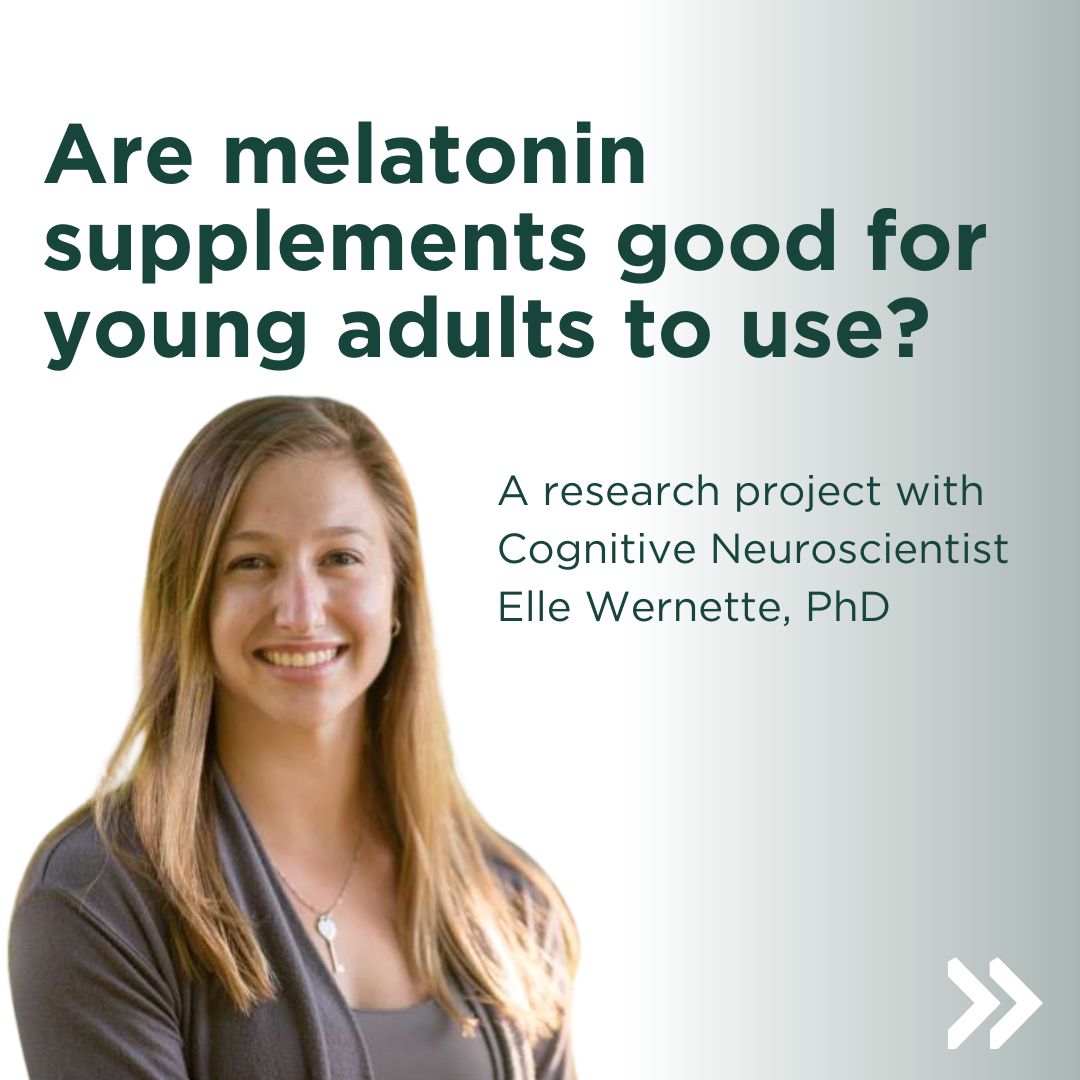Are melatonin supplements good for young adults to use?
June 13, 2024 - Elle Wernette, Shelly DeJong
 Did you know that melatonin is the most used over-the-counter sleep aid by undergraduate students, especially for single-night use? One study found that its use among Americans has grown five-fold in the past decade! But does melatonin work? And is it good for you? There is surprisingly little data on whether melatonin supplements help young adults sleep better.
Did you know that melatonin is the most used over-the-counter sleep aid by undergraduate students, especially for single-night use? One study found that its use among Americans has grown five-fold in the past decade! But does melatonin work? And is it good for you? There is surprisingly little data on whether melatonin supplements help young adults sleep better.
Michigan State psychology alum, Dr. Elle Wernette, earned her PhD in 2023 with a focus in cognition and cognitive neuroscience. For her dissertation, she decided to fill that research gap and investigate the effect of melatonin on sleep and morning cognition in undergraduates with healthy sleep.
Melatonin is a hormone produced by the pineal gland in the absence of light. It helps regulate the 24-hour sleep-wake cycle. It is also sold over the counter but is not well-regulated. In fact, over 70% of supplements do not contain the dose indicated on the label, and many over-the-counter doses are much stronger than what is needed to match a healthy melatonin level of around 0.5 mg.
Wernette and her advisor, Dr. Kimberly Fenn, ran a research study where participants took a placebo or melatonin pill, slept in the lab while EEG recorded their brain waves, and completed cognitive tasks. Their findings showed that melatonin did not affect sleep much, but it did impair cognition in the morning, suggesting that if sleep is already healthy, taking melatonin may have more consequences than benefits.
For those looking for a better one-night sleep, Dr. Wernette suggests trying this hack: Try watching the sunset, dimming the lights in your home to match the outside, turning down the room temperature slightly, and start your bedtime routine a little earlier than normal. These predictable behaviors help the body understand that it is in fact nighttime and that bedtime is near, just like melatonin does.
Learn more about sleep and other cognitive research here: https://psychology.msu.edu/programs/cognition-and-cognitive-neuroscience/index.html.

